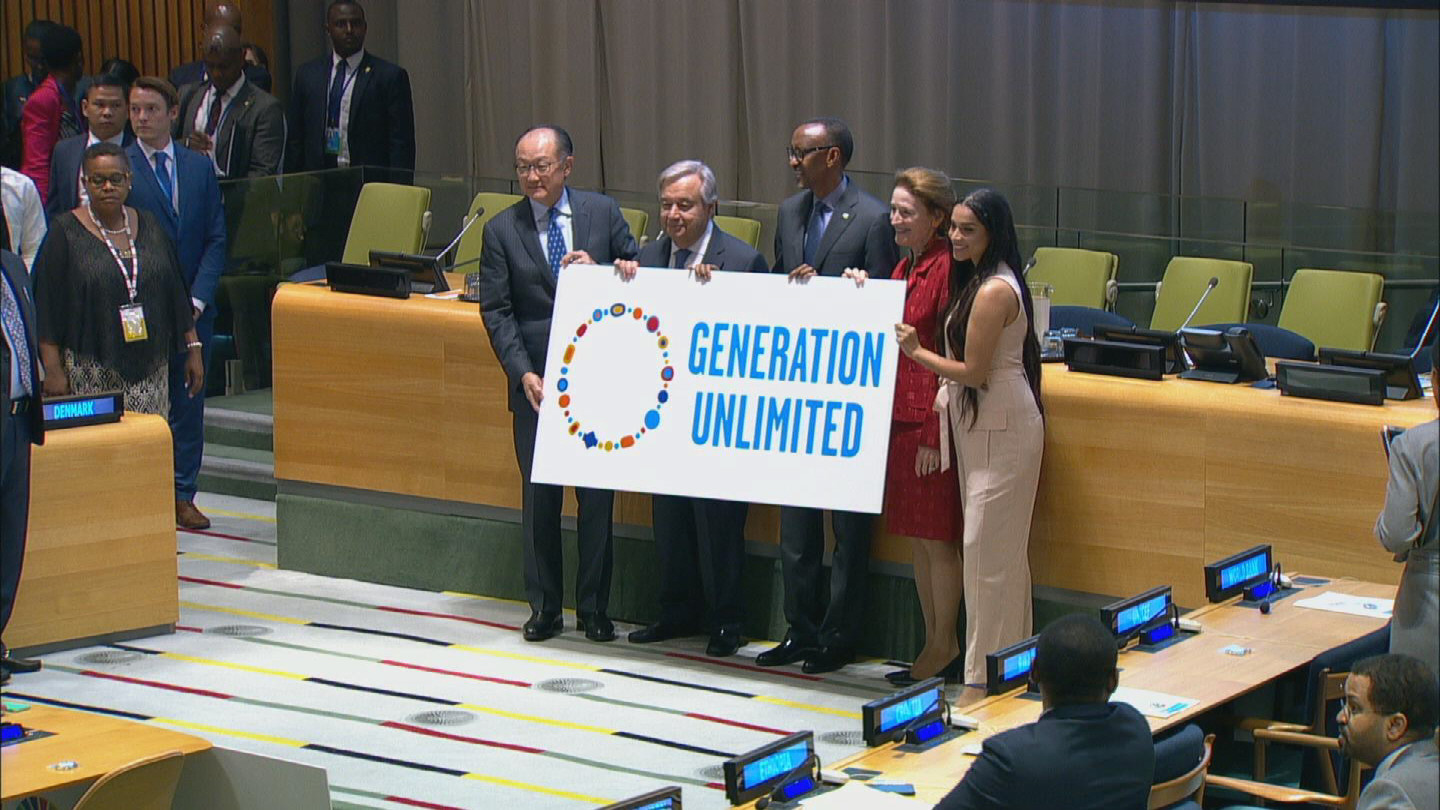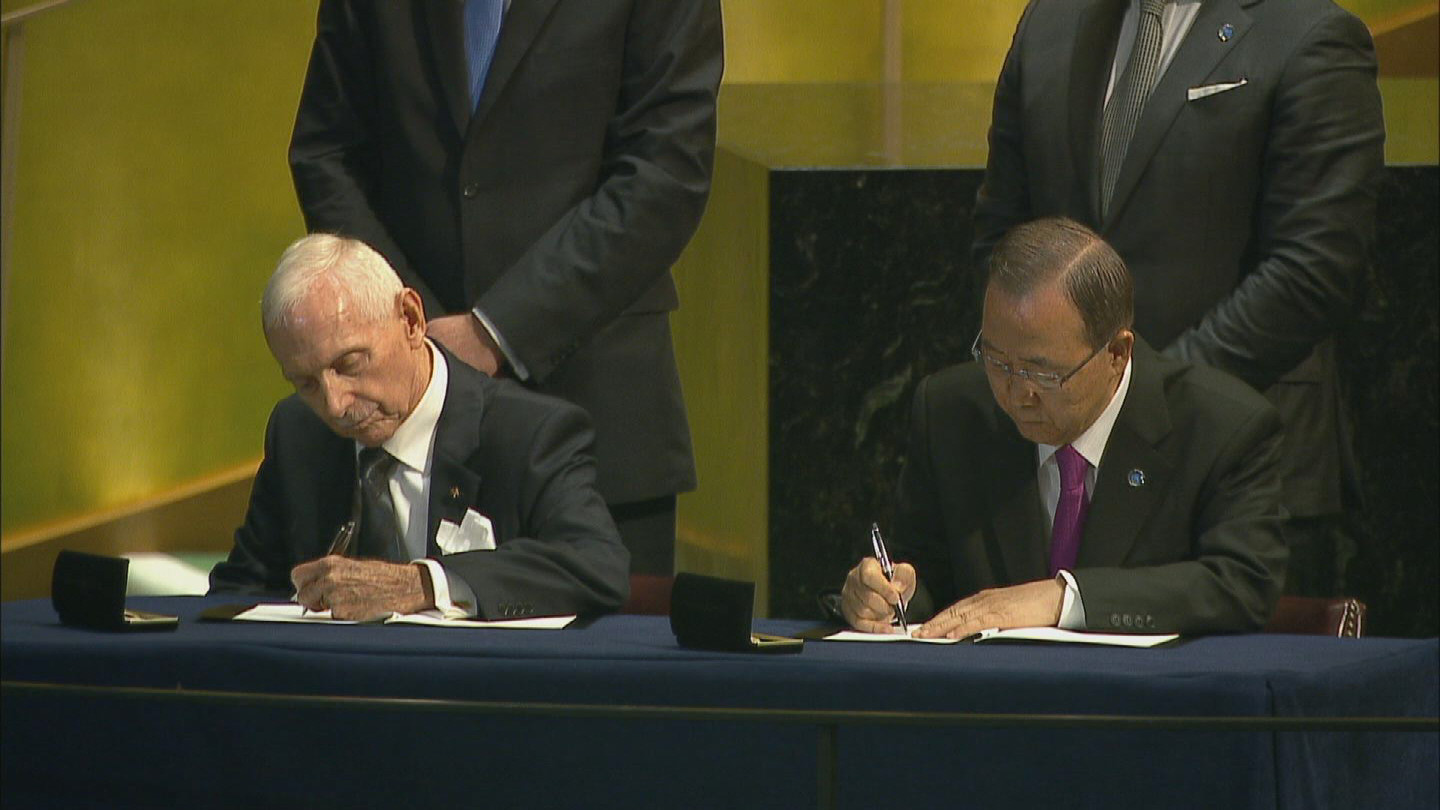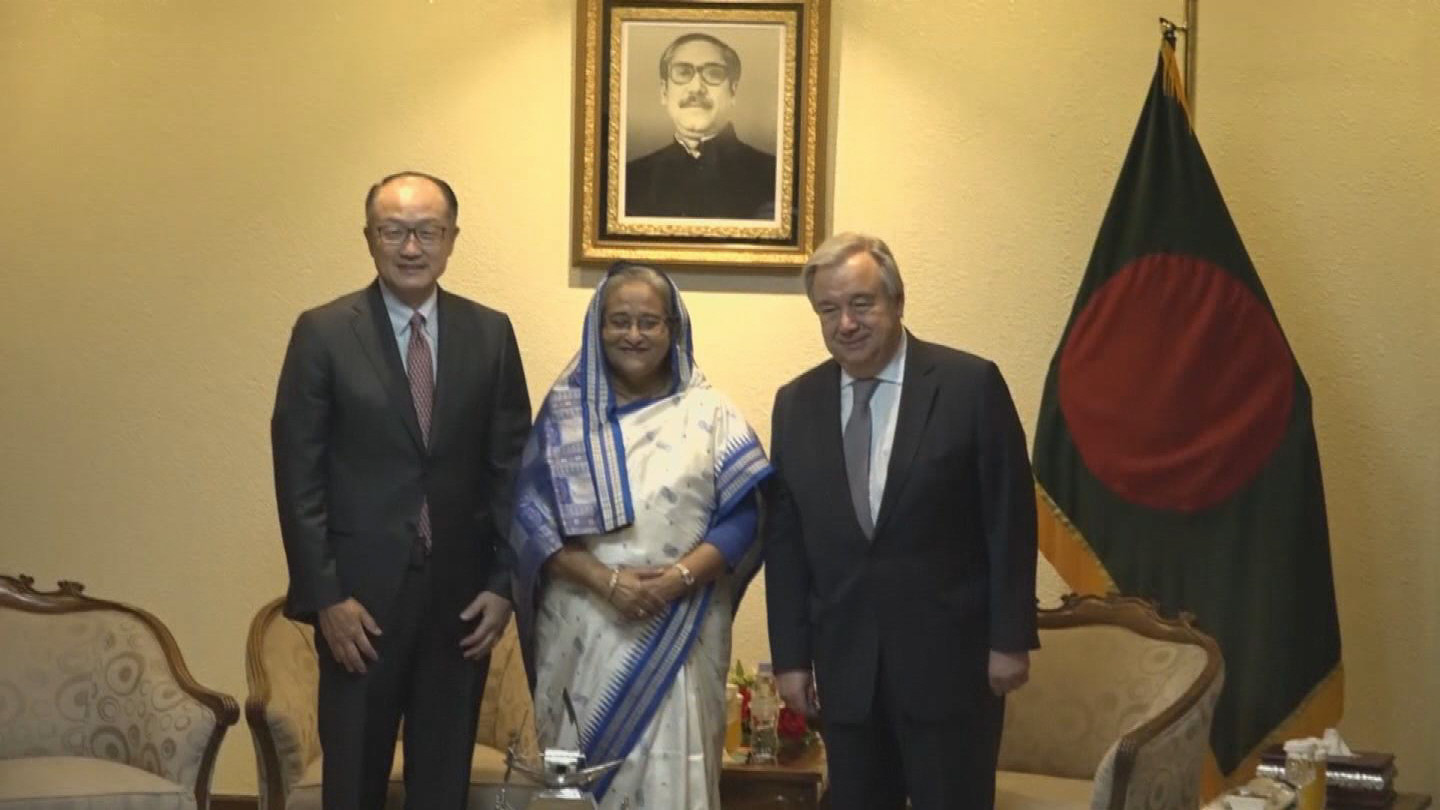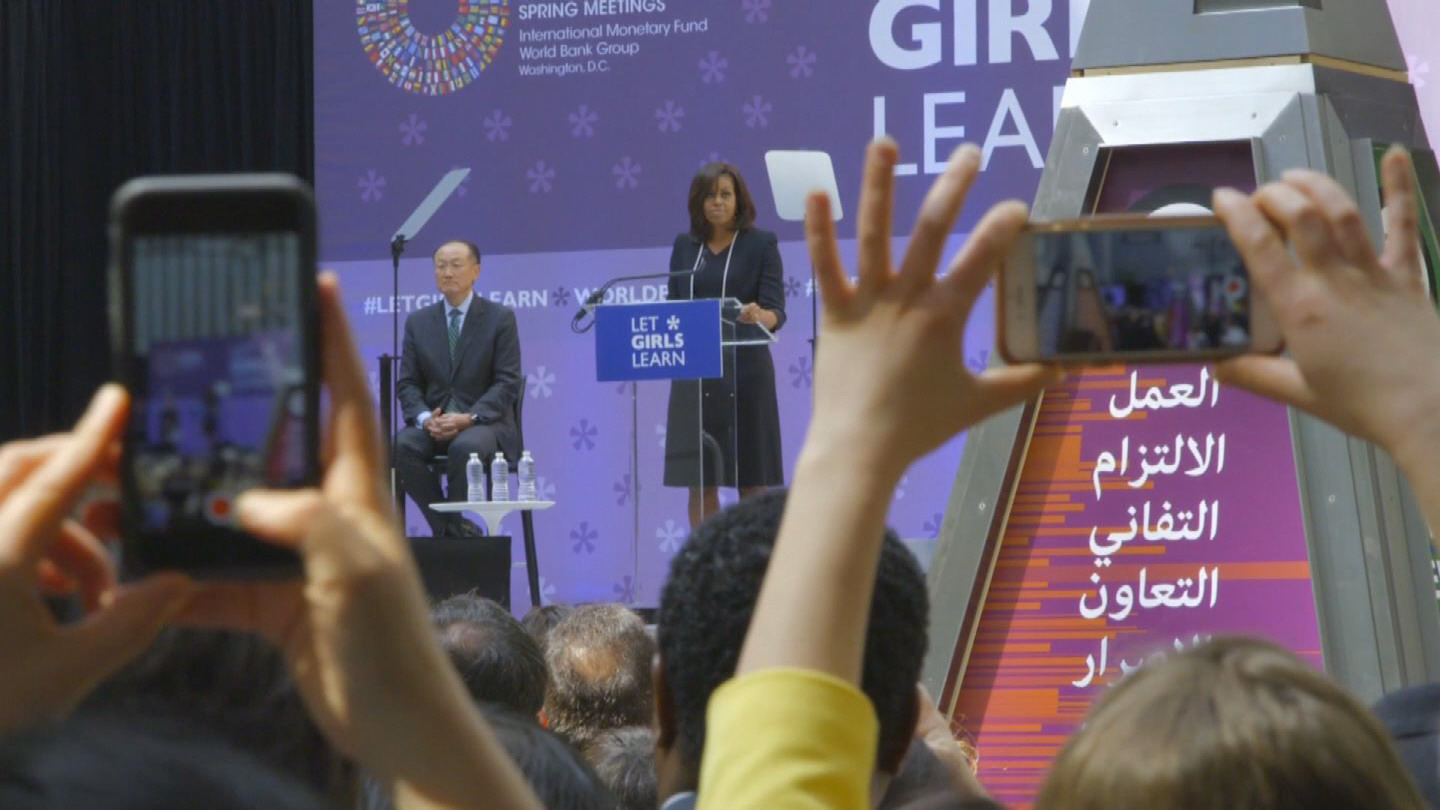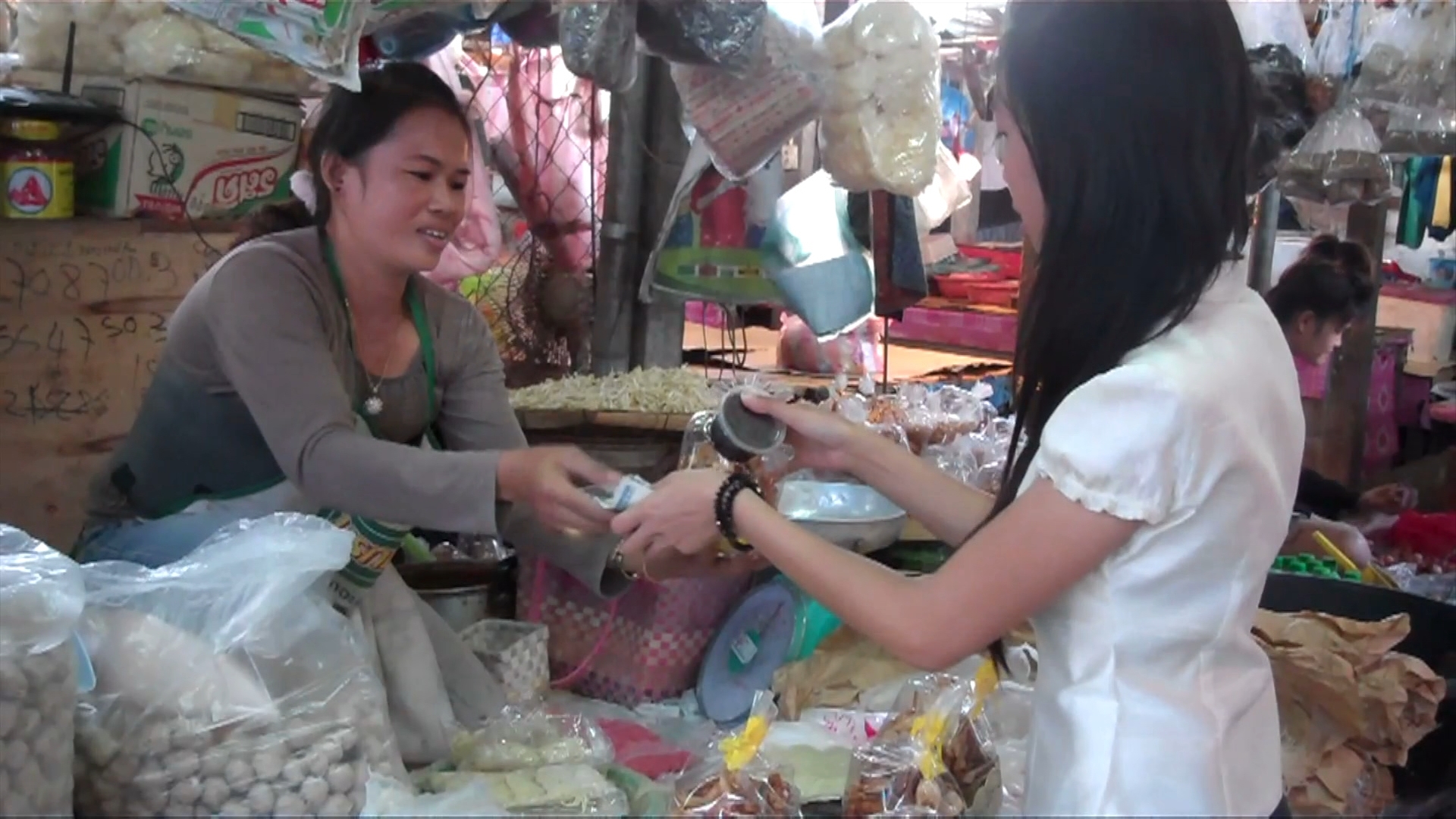WORLD BANK/ JIM KIM PRESSER
Download
There is no media available to download.
Share
STORY: WORLD BANK/ JIM KIM PRESSER
TRT: 02:23
SOURCE: WORLD BANK
RESTRICTIONS: NONE
LANGUAGE: ENGLISH / NATS
LOCATION: 20 APRIL 2017, WASHINGTON DC
1. Wide shot, Jim Yong Kim walking to podium
2. SOUNDBITE (English) President Jim Yong Kim, World Bank Group:
“We are encouraged to see stronger economic prospects after years of disappointing global growth. There are still many downside risks, however, and countries that have the fiscal space need to continue with structural reforms. This is vital to accelerating the sustainable and inclusive economic growth needed to end extreme poverty by 2030. We’re meeting at a time when we face several overlapping crises, both natural and man-made, all of which add urgency to our mission.”
3. Med shot, woman taking notes
4. Close up, woman taking notes
5. SOUNDBITE (English) President Jim Yong Kim, World Bank Group:
“Conflict, climate shocks, the worst refugee crisis since World War II, and famine in parts of East Africa and Yemen, which the UN has called the worst in 70 years.”
6. Med shot, people taking notes during speech
7. Med shot, cameramen taking photos
8. SOUNDBITE (English) President Jim Yong Kim, World Bank Group:
“In addition to fragility, accelerations in technology are changing the landscape. We estimate that two-thirds of all jobs that currently exist in developing countries will be wiped out by automation. At the same time, the Internet, smart phones, and social media allow everyone to see exactly how everyone else lives, which is causing aspirations to rise all over the world. I see this everywhere I go. So in the midst of these crises, and with rising aspirations, we must change the way we work in development finance.”
9. Med shot, man taking notes during speech
10. Med shot, woman recording speech on camcorder
11. Close up, man listening to speech
12. SOUNDBITE (English) President Jim Yong Kim, World Bank Group:
“We have to start by asking whether the private sector can finance a project. If the conditions aren’t right, we will work with our partners to de-risk that project or, if needed, de-risk entire countries or sectors.”
13. Close up, man listening to speech
14. Med shot, man listening to speech
15. SOUNDBITE (English) President Jim Yong Kim, World Bank Group:
“Here’s the good news: There’s never been a better time to find those win-win solutions. There’s trillions of dollars sitting on the sidelines, earning little interest, or even negative interest, and investors are looking for better returns. That capital should be mobilized to help us meet the exploding aspirations of people all over the world.”
16. Wide shot, cameras in the back of auditorium
The global economy is strong but famine and refugees, combined with job losses to automation, threaten the poorest countries, World Bank Group President Jim Yong Kim said today (20 Apr) at the start of the WBG-IMF Spring Meetings in Washington, DC. Kim said the good news is that the Bank can help private investors bring capital to developing countries with lower risk.
Kim said “we are encouraged to see stronger economic prospects after years of disappointing global growth” but stressed the need to continue with structural reforms, which he said “is vital to accelerating the sustainable and inclusive economic growth needed to end extreme poverty by 2030.”
The World Bank Group President said “conflict, climate shocks, the worst refugee crisis since World War II, and famine in parts of East Africa and Yemen, which the UN has called the worst in 70 years.”
In addition to fragility, he said “accelerations in technology are changing the landscape” estimating that “two-thirds of all jobs that currently exist in developing countries will be wiped out by automation.”
At the same time, he said, “the Internet, smart phones, and social media allow everyone to see exactly how everyone else lives, which is causing aspirations to rise all over the world.”
Kim said the “good news” is that “there’s trillions of dollars sitting on the sidelines, earning little interest, or even negative interest, and investors are looking for better returns. That capital should be mobilized to help us meet the exploding aspirations of people all over the world.”
Each spring, thousands of government officials, journalists, civil society organizations, and participants from the academia and private sectors, gather in Washington DC for the Spring Meetings of the World Bank Group and the International Monetary Fund.

